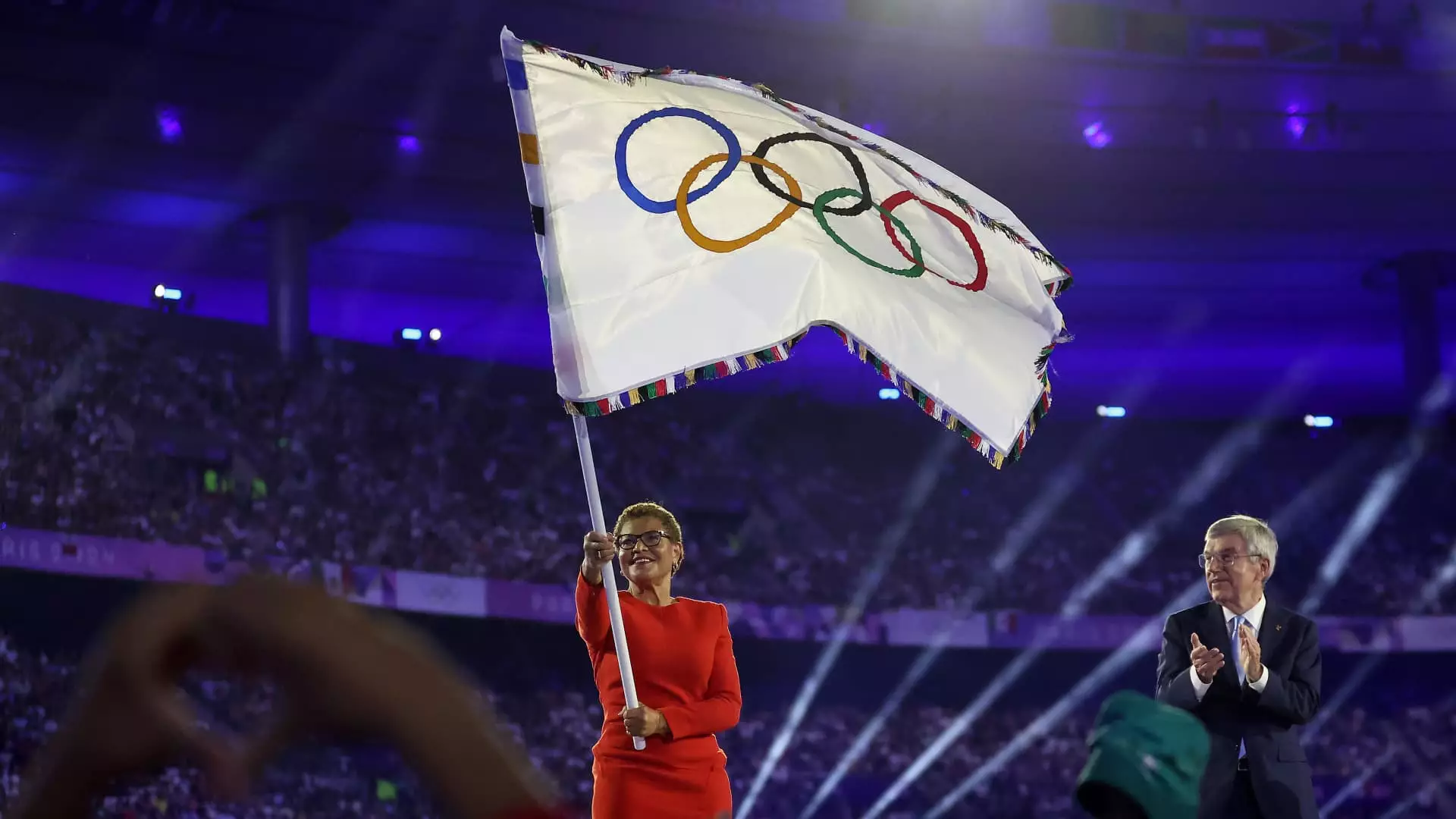The excitement surrounding the upcoming 2028 Summer Olympics in Los Angeles is palpable, especially following the successful execution of the 2024 Olympics and Paralympics in Paris. As anticipation builds, city officials, stakeholders, and the local community are keenly focused on the preparations required to deliver an unforgettable experience. In a recent appearance at a CNBC event, Los Angeles Mayor Karen Bass outlined her ambitions and concerns in gearing up for this monumental occasion.
Mayor Bass articulated a sense of urgency regarding the myriad of tasks necessary to ensure the city is adequately prepared for the Games. During the 1984 Olympics, Los Angeles left a profound legacy that encompassed not only successful event management but also lasting benefits for its infrastructure. Bass emphasized her belief that the upcoming Olympics could stimulate improvements across the city, especially in public transportation.
The vision is clear: the goal is to diminish the reliance on traditional vehicular transport by encouraging the use of public transit systems. Bass proposed a robust framework that insists on having “no cars to the venues.” This ambition demands substantial investment in bus and subway networks, as well as collaborations with neighboring municipalities to facilitate event-related transport needs, including borrowing buses.
One prominent challenge Bass pointed to is the issue of homelessness in the city. She highlighted the ongoing initiative to construct over 18,000 new housing units for the homeless population. This commitment is not just about improving the city’s aesthetics before the global spotlight shines upon it; it’s a substantive approach to human-centered urban development. By addressing homelessness in conjunction with the Olympics, LA can set a powerful narrative that intertwines the dignity of the city’s inhabitants with its global reputation.
Moreover, in order to alleviate traffic congestion during the Games, there are plans to engage local businesses for strategic workforce management. Shifting to remote work and rescheduling truck deliveries to nighttime hours echo strategies that had seen past success during the 1984 Games, demonstrating a thoughtful and familiar approach to modern logistical challenges.
When discussing the event’s execution, LA 2028 President Casey Wasserman expressed his enthusiasm after witnessing the Paris Games. He highlighted the captivating elements that enchant audiences worldwide, vowing to mirror that magic in Los Angeles. Unlike past Olympiads, LA 2028 represents a significant departure from traditional practices, with the decision to utilize existing venues rather than develop new permanent structures, thus marking a historic first for the Games.
However, integrating iconic Los Angeles landmarks into the Olympic vision presents its own set of challenges. While Paris cleverly positioned stunning architectural gems to enhance their Games, Los Angeles must navigate its unique landscape of cultural symbols. An exciting yet complex proposition came to light with the Olympic Torch handover, where virtual enhancements were used to present the Olympic spirit against the backdrop of the iconic Hollywood Sign. From Wasserman’s perspective, further discussions may need to address the feasibility and implications of using such landmarks in more integrated ways.
The cultural significance of the Olympics extends beyond mere athletic prowess, and this is where actress Jessica Alba sees an extraordinary opportunity. As a member of the LA 2028 board, she envisions the Games as a canvas to showcase the diverse fabric of Los Angeles—from entertainment to culinary diversity and fashion. Alba’s claim that “LA is a main character” underscores the intention to let the city shine alongside its athletes on the world stage.
With robust planning, cultural engagement, social responsibility, and logistical finesse, Los Angeles has the opportunity to redefine the Olympic experience. Balancing ambitious infrastructure projects, a commitment to community welfare, and a celebration of cultural identity may very well ensure that LA 2028 goes down not just as an event, but as a transformative period for one of the world’s most storied cities. The next few years will be critical; how the city navigates these waters will undoubtedly shape its legacy long after the Olympic flame has extinguished.

